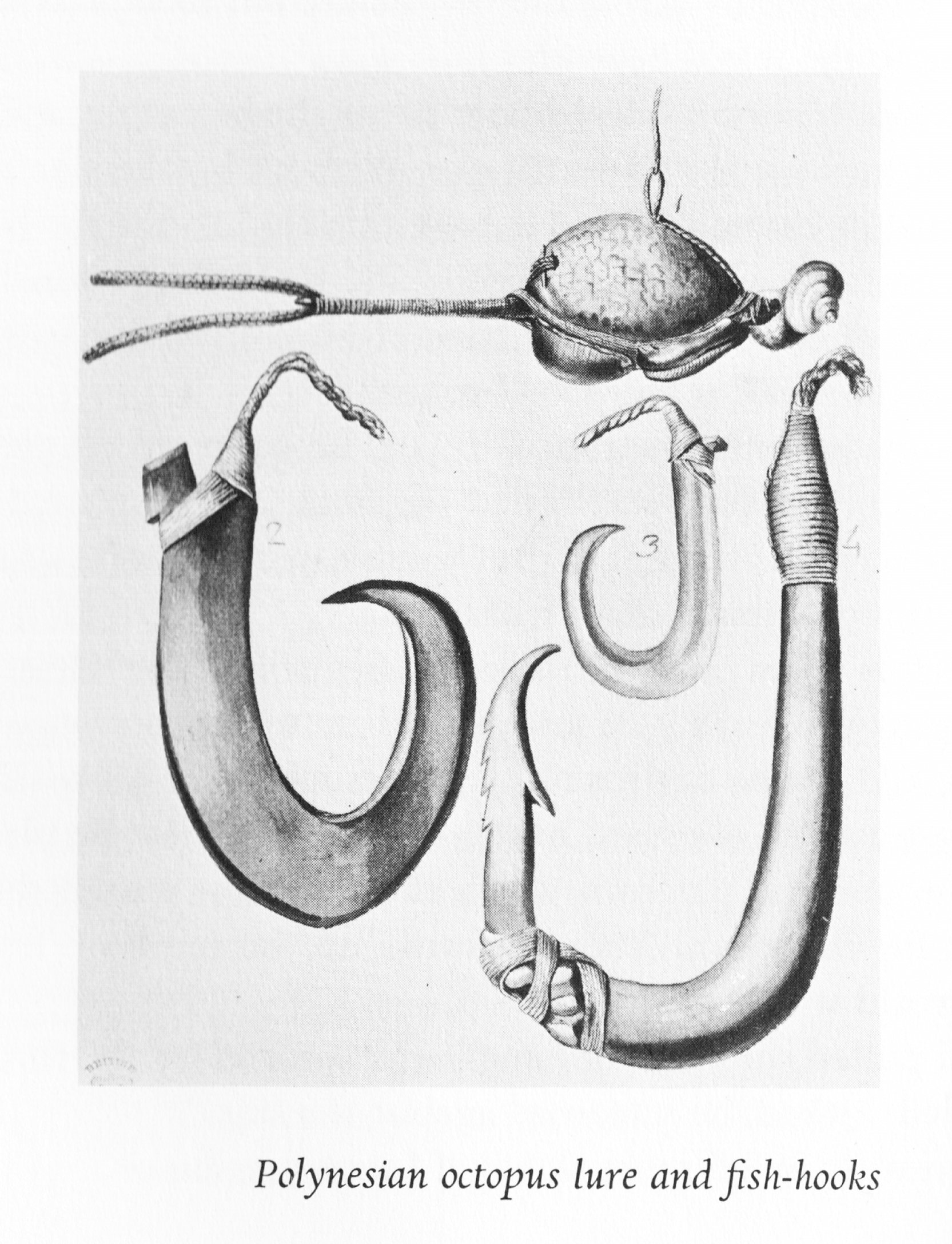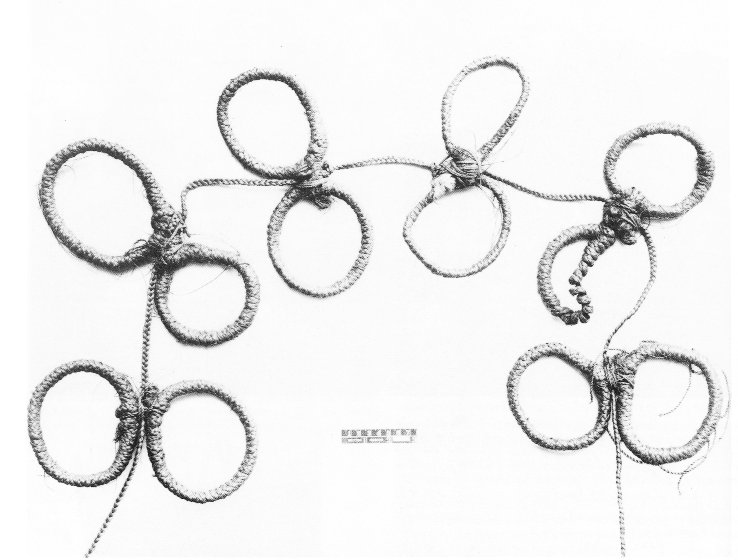|
TRANSLATIONS
Let us now continue with the potlatch of the Trickster (Raven). First, though, a little - but important - piece to the great puzzle: "The English word potlatch comes directly from Chinook Jargon, where it is used in two senses: (a) as noun and verb with the same meanings as in English, and (b) as a common noun and verb meaning 'gift' and 'to give'. The root is evidently Nootka ppaatlppiichi'atl. This is the repetitive inceptive form of the verb ppa, meaning 'to transfer property in the context of a public feast ... The original sense of ppa is probably 'to touch' or 'to reach out with the hand' ..." (Sharp as a Knife)
There is a possibility that Polynesian pa is related to Nootka ppa:
I here remember the octopus lure and the soul catcher:
As to Raven, he is The Mad Hatter: rave ... †be mad, (hence) talk wildly ... (English Etymology) To rave is to prattle. "... everything the Raven lays his hand or beak or claw on turns to mockery. He asks for help in bringing in the roofing - but stops the workers moments after they've begun. Does it suddenly occur to him that these are services he has to pay for, or is his house so tiny that one load of bark is all he needs? Skaay later tells us outright that the house will not accomodate the guests: it doesn't fit the potlach held on its behalf. Sooner or later we have to wonder if the house is really there - or whether it is any more substantial than a fleet of spruce-cone warriors in rotten-wood canoes. Here I have to insert a remarkable fact: "... He is popularly referred to as the 'Mad Hatter', but is never called by this name in Carroll's book - although the Cheshire Cat does warn Alice that he is mad, and the Hatter's eccentric behavior supports this. (Likewise, the chapter in which he first appears, 'A Mad Tea-Party', is often erroneously called 'The Mad Hatter's Tea Party but in fact it takes place in the garden of the March Hare.) ..." (Wikipedia) ... he held the potlatch out-of-doors, they say ... Play-acting at least is one of the Raven's skills, and he exercises it here, dressing like a beggar to demonstrate his poverty and speaking in princely metaphor to demonstrate his rank while he asks for gifts of food from the richest beings in the sea. Porpoise Woman translates the Raven's arcane metaphors into metaphors of a more familiar kind. Then, it seems, the gods themselves are drawn into the comedy. They take Porpoise Woman literally and respond by throwing food. Greedy though he is, the Raven has been charged in this scene with edible energy, and before the poem can end, he must give that energy away. He does this in his final potlach gesture, hurling herring toward the waiting hands of unborn human beings." (Sharp as a Knife) The title 'Sharp as a Knife' is alluding to how easy it is to loose one's foothold: " ... 'Die Erde ist schmal und scharf wie ein Messer' ... A thousand kilometers to the south, in 1913, one of Sapir's Nuuchahnulth teachers - probably Saayaacchapis - expressed the principle in a similar image, saying: 'A man walks ahead as though on a straight line as slender as a hair. If he misses a step, he drops down and dies.' ..."
|





